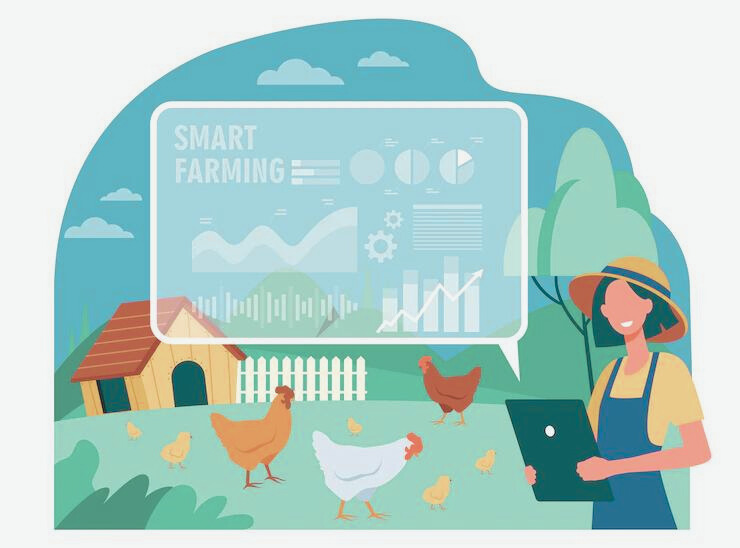
In the realm of insurance and financial services, State Farm has emerged as a prominent player, extending its reach beyond individual policyholders into the realm of business-to-business (B2B) services. The transition from a consumer-centric approach to a comprehensive business to business model represents a strategic evolution, one that underlines State Farm’s commitment to offering tailored solutions to businesses of all sizes and industries.
Understanding the Transition
State Farm’s foray into the B2B domain was not an abrupt shift but rather a strategic response to changing market dynamics and demands. Traditionally known for its extensive portfolio of auto, home, and life insurance products for individuals and families, the company recognized the need to diversify and tap into the lucrative B2B sector.
The decision was propelled by several factors. Firstly, the business to business market offers substantial growth opportunities and long-term sustainability. Businesses, regardless of their size, require a spectrum of insurance, financial, and risk management solutions to safeguard their operations and assets. Recognizing this, State Farm aimed to leverage its existing expertise and resources to cater to the unique needs of businesses.
Secondly, the evolving landscape of technological advancements has facilitated a smoother transition into the B2B realm. State Farm has harnessed digital technologies to streamline its business to business operations, making transactions more efficient and providing real-time, data-driven insights to businesses.

Tailored Solutions for Business to Business
State Farm’s transition into business to business operations entailed a careful assessment of the specific requirements of businesses. The objective was to offer tailored solutions that addressed the distinct challenges faced by different industries. These offerings encompass an extensive range of services:
1. Commercial Insurance Packages:
State Farm has curated a suite of commercial insurance packages to cater to the diverse needs of businesses. This includes coverage for property, liability, worker’s compensation, business interruption, and specialized coverages tailored to specific industries.
2. Risk Management and Consulting:
Understanding the criticality of risk management in business operations, State Farm offers consulting services to help businesses identify, assess, and mitigate risks effectively. This proactive approach aids businesses in making informed decisions and ensuring the continuity of their operations.
3. Employee Benefits:
Employee welfare is a vital aspect of any business. State Farm offers a range of employee benefit programs, including health insurance, retirement plans, and other perks, to assist businesses in attracting and retaining top talent.
4. Financial Planning and Investment:
In collaboration with its financial experts, State Farm provides financial planning and investment services to businesses, aiding them in managing their assets, planning for growth, and securing their financial future.

The Role of Technology
Central to State Farm’s successful foray into the business to business sector is its strategic utilization of technology. The company has invested significantly in developing advanced digital platforms and tools that streamline interactions, enhance decision-making, and provide superior customer experiences.
1. Online Portals:
State Farm has developed user-friendly online portals that allow businesses to access their policies, submit claims, request quotes, and manage their accounts seamlessly. The intuitive design and functionalities enhance efficiency and convenience.
2. Data Analytics:
Leveraging big data and advanced analytics, State Farm processes vast amounts of data to derive meaningful insights. This data-driven approach helps businesses make informed decisions, optimize their insurance portfolios, and identify potential areas for improvement.
3. Machine Learning and AI:
The integration of machine learning and artificial intelligence (AI) enables State Farm to automate processes, predict market trends, and customize offerings based on the unique needs and behavior of businesses.

Building Strong Partnerships
A critical aspect of State Farm’s B2B strategy is establishing robust partnerships with other businesses and industry stakeholders. Collaborations enable the company to augment its service offerings and provide a comprehensive suite of solutions to businesses.
1. Partnerships with Industry Leaders:
State Farm strategically collaborates with industry leaders and experts to enhance its understanding of various sectors. These partnerships help in tailoring insurance products and services to match the specific needs and risks associated with each industry.
2. Brokerage Alliances:
State Farm has forged alliances with brokerages and intermediaries, extending its market reach and ensuring that its solutions are accessible to a broader range of businesses.
Success Stories and Case Studies
To highlight the effectiveness of State Farm’s business to business approach, we can delve into specific success stories and case studies. These narratives can outline how State Farm’s tailored solutions have positively impacted businesses, enabling them to thrive in their respective industries.

Future Outlook and Expansion Plans
State Farm’s venture into the B2B realm has positioned it as a comprehensive insurance and financial services provider. The company’s continued investment in technology, strategic partnerships, and customer-centric approach are indicative of its commitment to sustained growth in the B2B domain.
Looking forward, State Farm aims to expand its B2B footprint, diversifying its solutions further and catering to emerging industries and markets. The company will continue to innovate, leveraging cutting-edge technologies to meet the evolving needs of businesses, both locally and globally.
You can also read : Content Marketing: Crafting Digital Success
In conclusion, State Farm’s transition into the B2B domain represents a strategic shift that aligns with market demands and technological advancements. Through tailored solutions, advanced technology integration, and strong partnerships, State Farm is well-positioned to make a significant impact in the B2B landscape, providing valuable insurance and financial services to businesses across the spectrum.